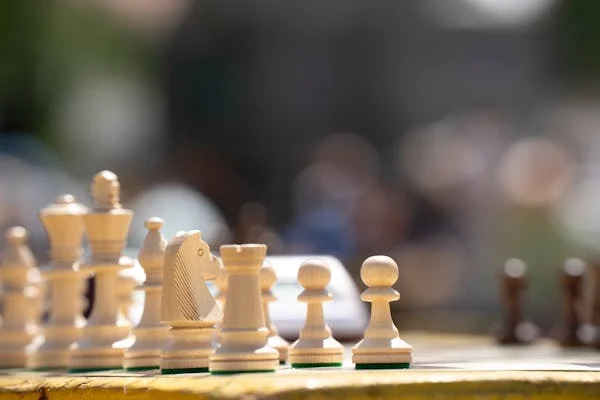If you live in Aberdeen and love chess, this article is made just for you. Whether you’re just learning how the pieces move, or you’re looking to sharpen your game to a professional level, the right training makes a big difference. Aberdeen is full of smart learners, and chess is catching on more than ever.
Online Chess Training
Landscape of Chess Training in Aberdeen and Why Online Chess Training is the Right Choice
Aberdeen is a beautiful city. It’s full of people who enjoy thinking games like chess. Over the years, chess clubs and schools have grown. You’ll find classes in community centers, schools, and even at local events. Some people learn from friends. Others play online games to improve. But very few have a full system to follow.
That’s where online chess training is different.
Online training isn’t just about playing games on the internet. It’s about learning with purpose. You have a teacher. You have goals. You have a clear path. You learn step by step.
Let’s imagine this.
In an offline setup, you attend a weekly class at your local club. It may be fun, but the teacher may not always track your progress. You don’t get homework. You don’t get feedback unless you ask. And if you miss a class, you lose that week’s lesson.
Now let’s look at online training with a proper academy like the Global School of Chess.
You log in from home. You meet your coach. The lesson is already planned. There’s a topic to learn. You play games based on that topic. You solve puzzles. And later, your coach sends feedback. If you miss a class? No problem. You can watch the recording. If you want extra help? There’s always someone to guide you.
That’s the beauty of structure. That’s the power of a good online chess school.
In Aberdeen, offline options are there, but they’re often limited. Maybe one or two coaches in the area. Maybe a club that meets only twice a week. That’s not enough if you really want to grow.
With online chess training, the whole world opens up. And the best part? You’re not stuck in traffic. You’re not rushing to class. You just open your laptop and start learning.
How Global School of Chess is The Best Choice When It Comes to Chess Training in Aberdeen
Let’s talk about the Global School of Chess.
This is not just a coaching academy. It’s a complete learning system made for all levels—beginners, intermediates, and advanced players. Whether you’re a child, a teenager, or an adult returning to the game after years, this school has a program built just for you.
When you join the Global School of Chess, the first thing they do is assess your current level. This isn’t just a quick quiz. It’s a thoughtful look at how you play, what you know, and where you need help.
Once your level is clear, a coach is assigned to you. Not just any coach. A trained, experienced teacher who understands how to teach online. Someone who explains slowly. Someone who doesn’t rush. Someone who gives you honest feedback without making you feel bad.
The lessons follow a clear path. Each lesson is part of a larger plan. You learn opening ideas, middle-game plans, tactics, endgames, and real tournament tricks. You’re not just told what’s right—you’re shown why it’s right.
And it doesn’t stop there.
Every week, you receive:
- Personal feedback on your games.
- Worksheets and puzzles tailored to your level.
- Recorded lessons you can watch again.
- Practice tournaments with other students.
- Monthly progress reviews with your coach.
That’s not just teaching. That’s mentoring.
And because it’s online, your coach can be anywhere in the world. You get to learn from the best—not just the ones who live nearby.
Parents in Aberdeen especially love the Global School of Chess. They say it’s structured, safe, and serious. Kids stay focused. They learn discipline. And most of all, they enjoy it.
Some students even go on to play in big competitions. Others just become great thinkers and learners—because chess teaches more than just moves. It teaches focus, patience, and problem-solving.
No other academy in Aberdeen matches this level of care, planning, or coaching. And that’s why, when it comes to online chess training in Aberdeen, Global School of Chess is the best choice you can make.
Offline Chess Training
While online chess training has changed the way people learn, there are still some players in Aberdeen who prefer offline coaching. Let’s take a look at how offline chess training works in the city.
In most cases, offline training happens in schools, local chess clubs, libraries, or community centers. Some private tutors may also visit homes. These classes usually take place once or twice a week. They often have groups of students together, sitting in a room, listening to the coach, and sometimes playing over-the-board games with each other.
This type of training can be helpful in some ways. Students get face-to-face interaction. They can physically move the pieces on the board. They may also feel more connected to their coach or classmates.
For example, in Aberdeen, the local chess club sometimes organizes group training sessions. The coaches are often skilled players who share their knowledge with kids and adults alike. Sometimes schools bring in part-time coaches to offer chess as an extracurricular activity. These programs are usually short, focused more on fun than structured improvement.
But here’s the key point: most offline training is casual. It’s usually not set up as a complete learning system. Students may improve slowly, but they often don’t have a clear path, regular assessments, or one-on-one attention.
In other words, it lacks structure.
Now let’s understand what that actually means for a learner.
Drawbacks of Offline Chess Training
The problem with offline training isn’t the people. It’s the system.
Offline chess training often feels random. One week the coach talks about opening traps. The next week, maybe a puzzle. Then maybe a game review. There’s no clear plan that takes the student from beginner to expert.
Here are some real issues students face:
No Fixed Curriculum
In a proper chess program, every student should move step by step—like learning how to read, write, and do math. But in most offline setups, the coach decides what to teach each week. There’s no fixed syllabus. So one week may be useful, and the next may not connect to what the student needs.
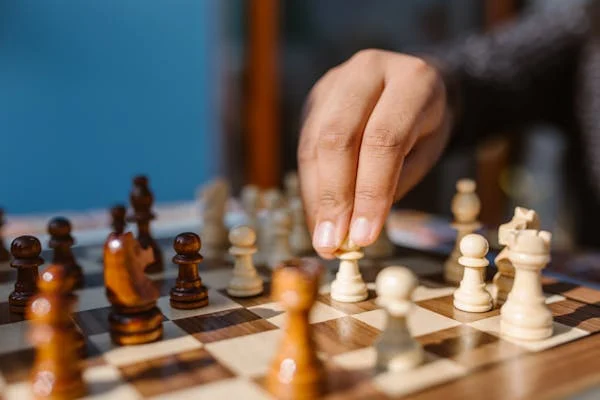
No Personal Feedback
In group settings, there’s not enough time for every student to get personal attention. If you play badly in a game, the coach may not even notice. You might be repeating the same mistakes without knowing it.
Travel and Timing Issues
Offline training means you need to go to the place. If it’s raining, if it’s cold, if you’re sick, or if your parents are busy—then you miss the class. And when you miss one class, you miss learning. Simple as that.
Limited Coaches
Aberdeen has only a few experienced chess coaches. If the best ones are booked or far away from where you live, your options shrink quickly.
No Game Tracking
After class ends, there’s no follow-up. Students don’t get homework, puzzles, or game reviews. They have no way to track their growth or fix their mistakes after the class.
Now let’s look at how the Global School of Chess handles all of these issues—and completely changes the experience.
Best Chess Academies in Aberdeen
Now that we’ve covered both online and offline training options, let’s get to what you came for—finding the top chess coaching academies in Aberdeen. And yes, we’ll begin with the one that stands out above all: Global School of Chess.
Global School of Chess
If you’re looking for the best chess academy for yourself or your child in Aberdeen, this is it.
The Global School of Chess is not just the #1 academy in Aberdeen—it’s one of the most trusted names in online chess coaching across the UK and beyond. And the reasons are clear.
Let’s look closely at what makes this academy so powerful.
Customized Coaching From Day One
As soon as you join, the school gets to know your level. They don’t guess. They watch your games. They study how you think. Then they place you in the right group—or assign you a personal coach.
If you’re a beginner, they start from the basics. If you’re already experienced, they help you go deeper—mastering positions, strategy, and time management.
Structured Learning, Week by Week
Every class is part of a curriculum. That means there’s a clear plan. You don’t jump from topic to topic. You grow step by step.
Let’s say your topic is “how to attack the king.” In your class, you’ll see examples. You’ll solve related puzzles. Then you’ll play games focused on that idea. Later, your coach will review your moves and point out what you did well—and what to fix.
That’s how real learning happens.
Personal Attention and Game Reviews
After your games, your coach sits with you online and goes over them. They explain why your move was good or bad. They don’t just say “wrong”—they show what would have worked better.
This kind of feedback is gold. It helps you grow fast.
Flexibility With Recordings and Schedules
Can’t make a class? No problem. Every lesson is recorded. You can watch it again anytime.
This helps students who travel, get sick, or have other activities. It also helps those who want to watch a lesson again to understand it better.
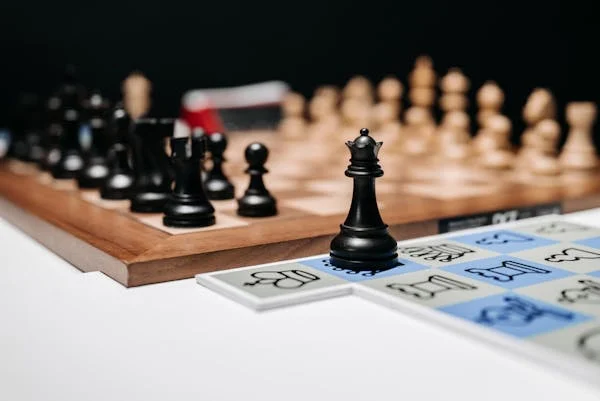
Practice Events and Tournaments
Global School of Chess organizes regular online tournaments. These aren’t just random games. They’re controlled environments where your performance is watched, and your mistakes are discussed later.
You play with real purpose. You grow with each event.
Coaches Who Truly Care
The teachers here aren’t just strong players. They are expert teachers. They know how to explain complex things in very simple ways. They make students feel comfortable and confident.
Parents often say the best thing about the school is how their child becomes more focused and disciplined—not just in chess, but in life.
Aberdeen Chess Academy
Aberdeen Chess Academy is one of the known offline chess hubs in the city. They offer physical classes at select locations and run short-term camps during school holidays. Some of their coaches have experience in local tournaments, and they focus mainly on young learners. Their lessons are usually group-based and take place in classrooms or libraries.
However, the main challenge here is inconsistency. Students may learn well during a camp, but when it’s over, there’s little follow-up. Also, the same lesson is often taught to a group with different skill levels, which means some students find it too hard, while others find it too easy.
Compared to the Global School of Chess, Aberdeen Chess Academy lacks one-on-one attention, personalized lesson plans, and regular performance feedback. There’s no homework, and no structured way to measure how much a student has improved.
In short, it may be a good way to get started, but not ideal if you’re serious about long-term growth in chess.
North East Chess Centre
The North East Chess Centre serves a wider region around Aberdeen. It organizes events and club meetings for chess lovers. Some of their coaches provide coaching at local schools and participate in weekend tournaments.
Their focus is more on creating a chess community rather than long-term teaching. You might get paired with a strong player to practice with, but most of the learning is informal. Some students do get better just by playing often, but that improvement is usually slow and not very targeted.
Global School of Chess, by contrast, doesn’t leave progress to chance. It builds it into the system. Every student has a clear roadmap. Every session adds value. And because everything is tracked, no effort is wasted.
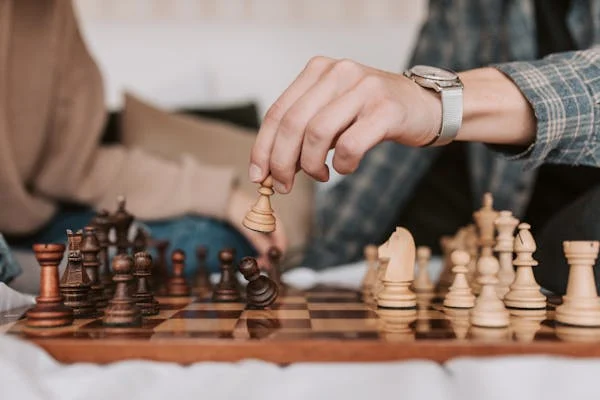
North East Chess Centre may give you access to local tournaments, but it won’t offer the type of detailed mentorship you’ll find with a full online training academy like Global School of Chess.
Chess Scotland Programs
Chess Scotland is the national chess body and occasionally runs programs across different regions, including Aberdeen. These programs are usually held during holidays or special school sessions. They often bring in strong players to teach large groups of children and give talks on chess improvement.
The sessions are useful for exposure but are not regular. They work more like chess festivals or showcases than like coaching programs. You learn a few fun tricks, play some games, and go home.
If you’re lucky, you might get a few tips from a titled player. But there’s no follow-up, no practice plan, and no long-term coach checking your growth.
While it’s great for occasional learning, it cannot compare to Global School of Chess’s ongoing support, personal training, and learning structure.
The Granite City Chess Club
This is one of Aberdeen’s long-standing chess clubs. It’s mostly meant for adults and hobbyists, although some teenagers do join. The club hosts internal tournaments, blitz nights, and casual get-togethers. You’ll meet people who are passionate about chess and eager to play.
But as far as coaching goes, it’s very limited. There are no regular classes. No study plans. No coaching staff assigned to learners. If you play better opponents, you might learn from your losses, but it’s not organized or guided in any way.
The Global School of Chess is different because it’s built for learning—not just for playing. You get actual teaching, based on your goals and level. You’re not left to figure it out on your own.
Granite City Chess Club is great for playing games in person. But if your goal is to become a much better player, especially in a short time, it simply won’t offer what you need.
Why Online Chess Training is the Future
Online chess training has already changed how people learn, and it’s only getting better.
Here’s why:
Flexibility and Convenience
You can learn from anywhere. All you need is a device and an internet connection. No travel, no waiting, no missed lessons. You pick the schedule. You learn at your own pace.
For students in Aberdeen, where top-level coaches may not be easily available nearby, online training gives access to world-class instruction without leaving your home.
Better Resources
Online academies like Global School of Chess give you recorded classes, digital workbooks, personalized assignments, and feedback after every session. You’re not limited to what fits in a classroom whiteboard. Everything is saved and available when you need it.
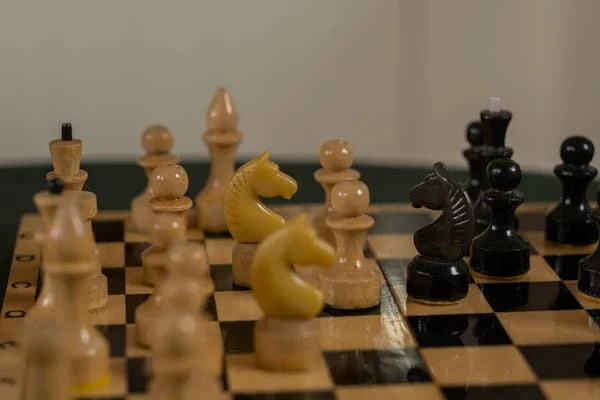
Focused One-on-One Coaching
The biggest advantage? Personal attention.
In online training, your coach sees you. Your games, your strengths, your mistakes. They talk to you. It’s not about keeping up with a group. It’s about what you need to grow.
Use of Tools and Technology
Online platforms use chess engines, analysis boards, and other tools that help you understand your mistakes in real-time. You don’t have to wait until next week to get feedback.
This kind of technology-powered learning is just not available in traditional offline settings.
Measurable Progress
At Global School of Chess, your growth is tracked. You get reports. You know which topics you’ve mastered, and which need more work. There’s a system. You’re not lost in a crowd.
How Global School of Chess Leads the Online Chess Training Landscape
The Global School of Chess doesn’t just participate in the online chess coaching world—it shapes it. While other platforms follow trends, Global School of Chess sets them. Its model doesn’t rely on imitation. It’s built from the ground up to solve real problems in chess education using the smartest strategies, the best people, and world-class systems.
And for businesses—especially education providers, extracurricular programs, or even community-led learning hubs—there’s a lot to learn from how this academy runs its chess training empire.
Let’s go deeper, and get a bit more strategic.
A System-First Approach: How Curriculum Becomes Scalable Impact
Most online coaches rely on ad-hoc lesson plans. Global School of Chess has done the opposite.
Every lesson delivered is part of a master curriculum—designed with years of chess education insight, mapped from beginner level to elite tournament prep. Each unit stacks logically on the previous one, with built-in reviews, optional depth paths, and thematic practice layers.
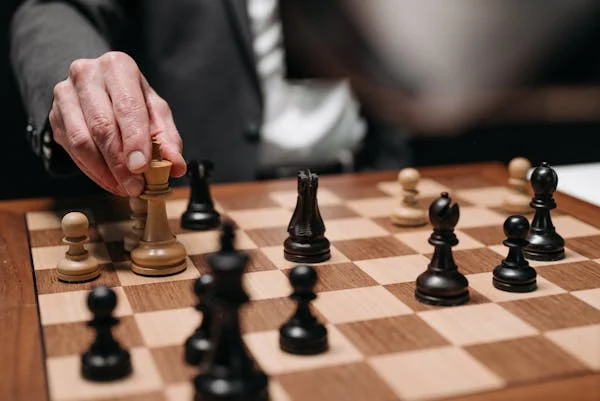
For businesses, this is gold.
Actionable Tip for Academies and Education Providers:
Build a modular content ecosystem. Instead of creating new lessons from scratch every week, build a path with pre-designed stages, then allow coaches to personalize each one based on the student’s learning style. This reduces inconsistency and increases student confidence.
Analytics That Actually Drive Learning
One of the biggest innovations at Global School of Chess is its use of learning analytics—not just to track attendance or quiz scores, but to spot learning blind spots.
Their platform monitors student progress in opening theory, tactics, time management, and psychological decision-making under stress. Coaches then use this data to deliver precision feedback—tailored to what the student doesn’t even know they need to fix.
That’s a powerful system.
Strategic Insight for Tech-Savvy Training Businesses:
Don’t just use data to report outcomes. Use it to predict mistakes before they happen. Build tagging systems into your curriculum that track where learners drop off, hesitate, or over-rely on patterns. Then arm your instructors with those insights.
Community as an Engagement Tool
The best learners often feel lonely in online education. Global School of Chess fixes that with an intentional community strategy.
Each student is placed in a peer group with others at similar skill levels. They attend group masterclasses, play practice events, and sometimes even collaborate on game reviews. Coaches host monthly town-hall-style Q&As with these groups, turning passive learners into active participants.
Why does this matter?
Because community = retention.
Actionable Advice for Business Operators:
Add structured peer interaction into your offering. Not just free chat or forums. Design weekly team goals, mini-tournaments, or lesson challenges where students work together and earn mentor feedback as a group. This builds both learning speed and loyalty.
Teacher Enablement = Student Success
Most platforms hire strong players who also coach. Global School of Chess hires coaches who are specialists in teaching—then trains them in chess psychology, communication science, and adaptive instruction techniques.
Each coach has access to student data, shared playbooks, and a centralized content library. They attend monthly internal training to improve their coaching performance based on real student outcomes.
This is a coaching culture with quality control baked in.
Insight for Other Academies:
Train your trainers like you train your learners. Run internal workshops where your coaches learn how to adapt tone, diagnose mindset blocks, and handle plateaus. The better your teachers grow, the better your students perform—and the less churn you’ll face.
Productization of Coaching: From Craft to System
Another big differentiator? The Global School of Chess productizes its coaching.
Each level of learning is packaged as a “track” or “program” with defined promises, resources, pacing guides, and benchmarks. This removes friction in the buying process and reassures parents and learners that the academy knows what it’s doing.
For example, instead of offering “10 lessons for £100”, the school offers:
- “The Tactical Thinker” track: designed for aggressive players stuck at 1200–1400 rating.
- “Checkmate Confidence” series: helping beginners finish games with clarity.
- “Tournament Prep Flow”: for rated players who want to cut blunders in half before their next open.
That’s not just a chess class. That’s a solution.
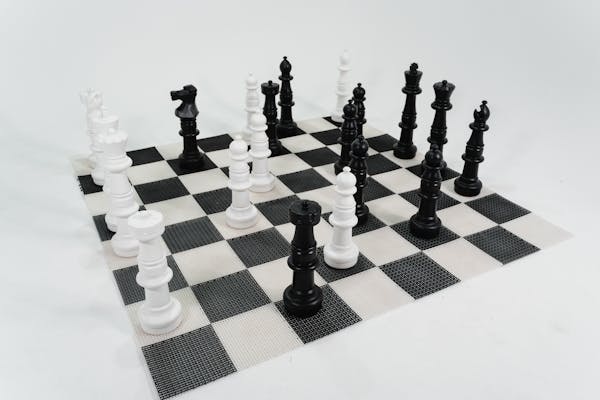
Actionable Step for Any Learning Platform:
Stop selling sessions. Start selling transformation-based programs. Name them, design around outcomes, and show the before-and-after journey. People buy when they believe your offer leads to real change—not just another lesson.
Wrapping It Up
Chess is more than just a board game. It’s a lifelong skill that builds the mind—teaching patience, decision-making, focus, and problem-solving. For the learners in Aberdeen, there’s never been a better time to begin this journey. And choosing the right academy can shape how fast, how well, and how deeply you grow.

